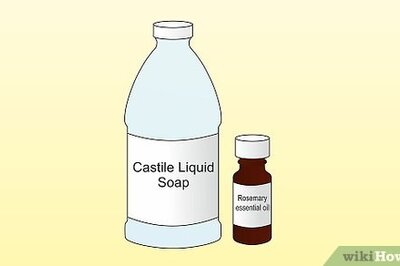
views
The mention of productivity brings to mind the phrase ‘Yogah Karmasu Kaushalam’ — which is one of the definitions of Yoga. Taken from a verse in the Bhagavad Gita, it translates roughly to ‘Yoga is excellence (or skill) in action’.
The Bhagavad Gita, in which Krishna exhorts Arjuna to action, is primarily a treatise on Yoga. It appears, therefore, that Yoga and efficiency in action are inextricably linked.
Those who practice Yoga do vouch for the agility, state of alertness and stamina that it yields. For the final word on this, we asked veteran Yoga guru Dr Hansa ji Yogendra for a Yogic take on working long hours and increasing productivity.
Here are edited excerpts from an interview:
The Value of Hard Work
Narayana Murthy is a wise and successful man and knows how work is done. Youngsters must, in fact, work very hard. It is work that keeps us sane and safe, and one must never say no to it.
That said, the enthusiasm is greater if the direction to work comes from within ourselves. This automatically brings in discipline. When we enjoy doing something, we do it with total integration and attention.
Time pressure can be a wonderful thing because we concentrate only on the work at hand. A free mind, without this pressure, lacks focus and chances for it to get distracted or lost in thoughts of the past or future are greater. If there is pressure, productivity is usually higher.
‘Ekagrata’ Counts, Not Hours
‘Ekagrata’, which we talk about in Yoga, is ‘one-pointed’ or single-minded focus. Once people know how to focus, they don’t get distracted and are able to work fast.
There was an instance of a doctor who, after learning Yoga, was able to complete his work in much less time. Earlier, he would work 12 hours a day, meeting 40 patients. After Yoga, he could handle the same amount of work in three hours. This was possible as his approach changed and he could grasp their issues immediately and help them more efficiently.
Principles of work in Yoga include sincerity, enjoying the work and not doing it grudgingly, focussing and being in the present, and having faith in oneself. With these, productivity is much more.
Duty Towards Work But Also Towards The Body
We must remember that the body has its own demands and emergency situations, too, which must not be ignored. We get hungry, we need to eat food; the neck feels stiff, we need to move the neck up and down and loosen the arms; the bladder and bowels are full, there’s a need to empty them.
Work, on its own, will never harm, but if the body is demanding attention, it has to be taken into account — signals and urges should not be ‘controlled’.
The other part is taking care to balance work with rest, recreation, sleep and duties towards family and society. These are all equally important for overall well-being.
Work Mustn’t Become the Cause for Diabetes, Heart Attacks or Orthopaedic Issues
Emergency situations demand more work and time. One has been in situations where you begin at 8 in the morning and it goes on to 10 in the night. At such times, we need to know how to take care of ourselves.
Follow these simple rules, so that work does not become a burden:
Every 20 minutes, take a long breath.
Every one hour, stand and move about a bit.
Every two hours, go to the window to see something in the far distance; this reduces tension of the optic nerves.
Each time there are visitors, walk to the gate to receive and see them off.
Did you know that former prime minister Lal Bahadur Shastri was known for carrying out all important discussions while walking in the garden?
Eating Right When Stress Comes Calling
Often, right eating is a casualty under pressure. Rather, food should be more carefully chosen at such times: simple, but nourishing and wholesome food, eaten on time, and in very little quantity.
Remember, there isn’t enough time to handle chillies, spices and other heavy items, as these create their own needs for more water, more management of acidity, flatulence, etc.
Work Eight Hours, Keep the Rest for Family, Recreation and Rest
Working eight hours a day is perfect. Eight hours of systematic work equals 10-12 hours of work by those who can’t focus.
This would also leave us with enough time for other things. Otherwise, work can overpower us and we become machine-like, without realising it. That, in turn, affects productivity over time.
In an emergency, give time to the workplace. However, this can’t be the norm. After eight hours of work, spend the rest with family, on recreation, on creating social ties, and remember to sleep well!
The author is a journalist, cancer survivor and certified yoga teacher. She can be reached at [email protected].


















Comments
0 comment